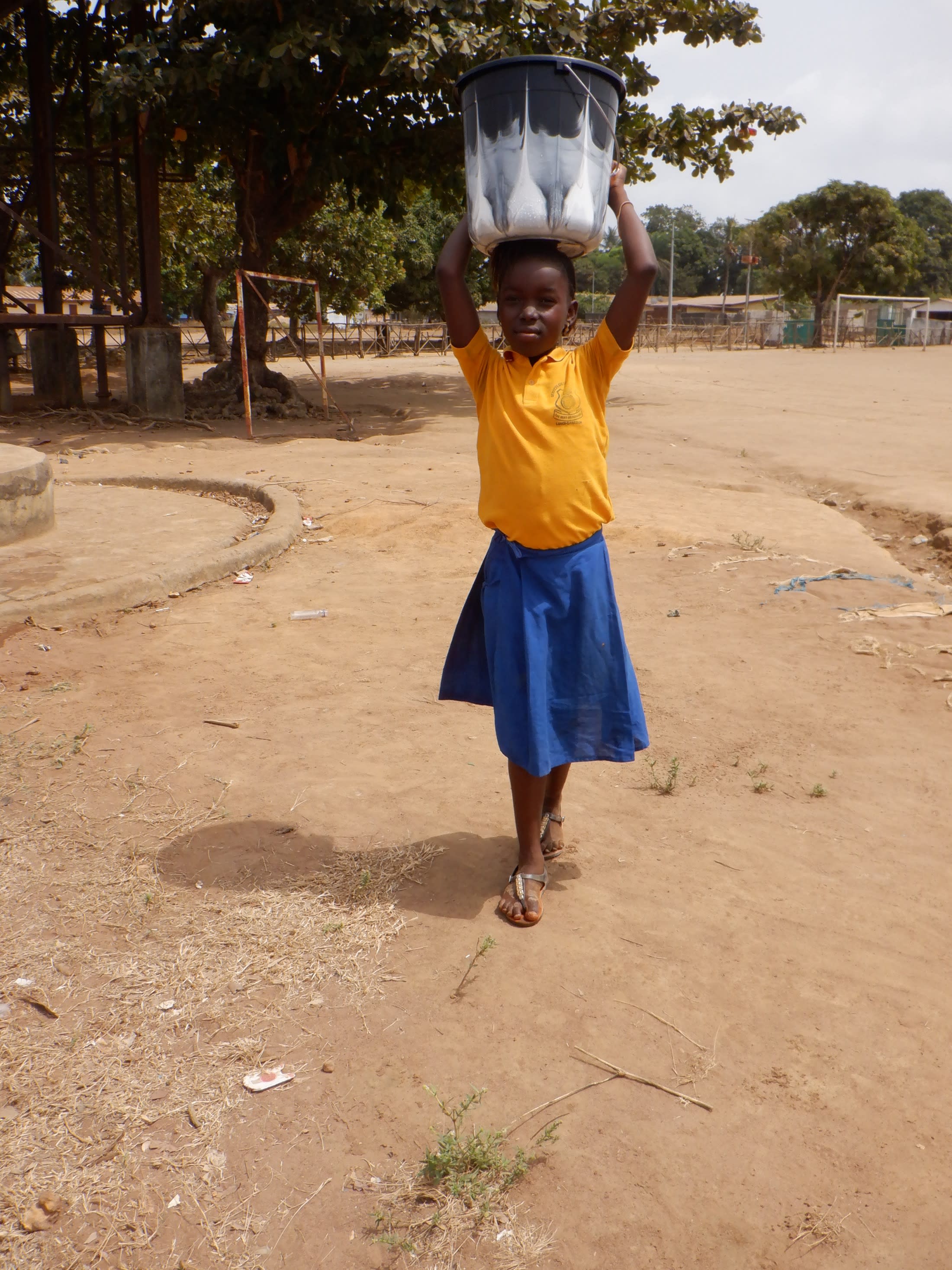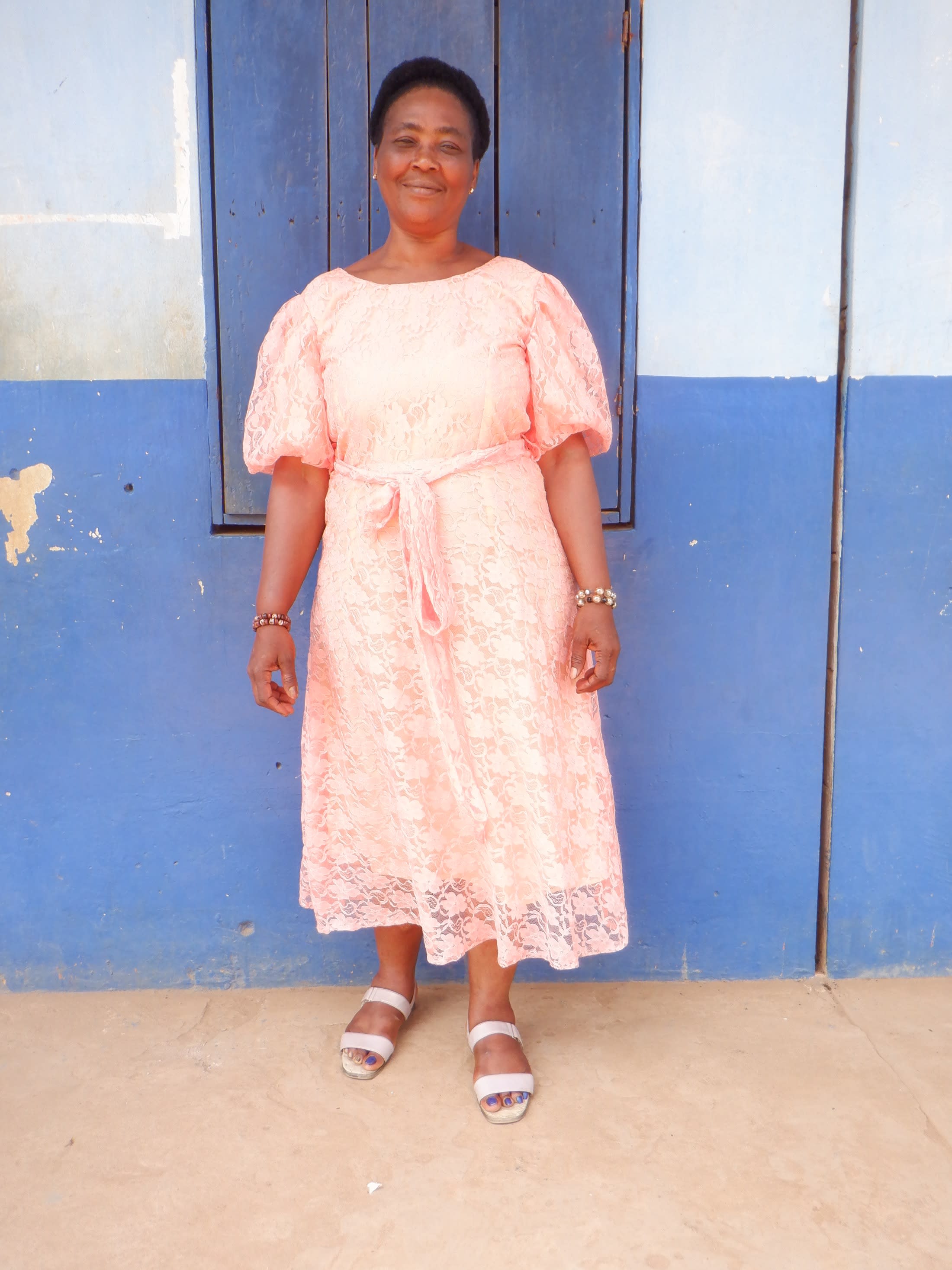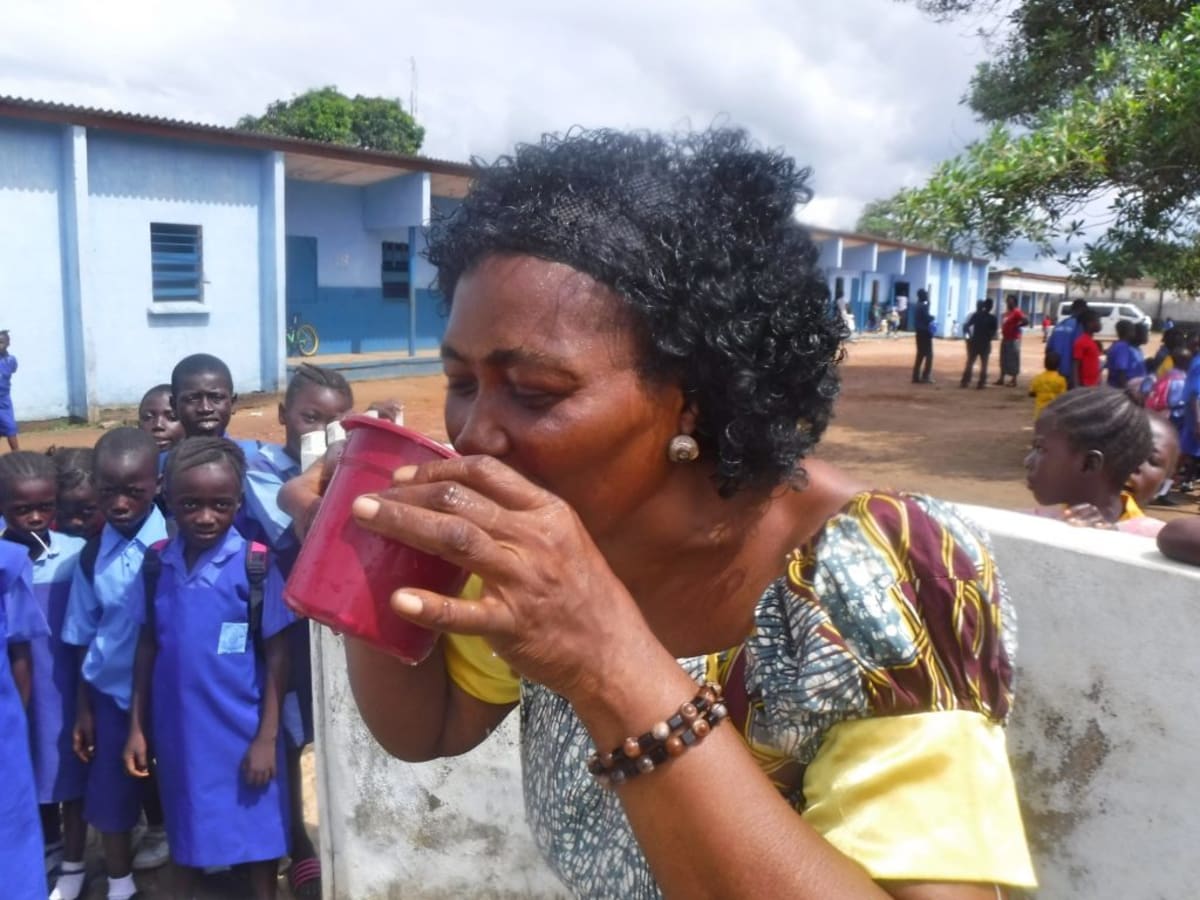Access to clean, safe water for the 547 students and 20 teachers of DEC Services Primary School is a daily challenge that drains their time and energy.
The school has a hand-dug well that regularly experiences breakdowns. The height of the pump is too high for smaller children, forcing them to climb onto the well cover to operate the pump. Since the well cover is not tightly sealed, water runoff flows back into the well and contaminates it. During the driest months of March and April, the water level is often low, and sometimes non-existent.

Every morning when students arrive at school, they leave school grounds and cross the busy main road to visit a neighboring well in search of water. It is a dangerous endeavor, as the road is frequently traveled by both speeding motorbikes and vehicles. Students risk serious injury or worse.
"I normally fetch water in the school compound, but the water well in the compound [does] not produce enough water, and even sometimes there is a pump breakage. Presently, the water at the well is dry," said student Kenewa S., age 11, shown below carrying water.

"Imagine going to school on [an] empty stomach and then [being] asked to fetch water daily for the use of the school. It not easy," concluded Kenewa.
Some students try to avoid the busy road and walk to the extreme end of the school property to collect water from a small swamp. The swamp water is unsafe for drinking and is primarily used to irrigate crops. However, when students are thirsty and need water, they will drink from nearly any source they can find without hesitation.

"I am the headmistress of DEC Primary School Military Barracks. The water situation in my school is really affecting me," said Michaella Moore, 56, shown above. "Ever since the water at the main source gets dry, the learning progress has been greatly affected. I must send the children to fetch water from the other alternate sources. Fetching water from the alternate source is time-consuming."
Learning during the day-to-day running of the school is negatively impacted as students have difficulty concentrating when thirsty and spend too much time outside the school campus searching for water. They are frustrated by the responsibility of fetching water every morning and desire instead to put their energy into paying attention to their lessons. The school sanitation facilities have also become especially unpleasant, as any water collected must first go to drinking instead of cleaning.
The students and staff of the school need a safe and sustainable water source where they can easily access water anytime. We plan to rehabilitate the current hand-dug well into a drilled borehole well. This will prevent the unnecessary water constraints that students and teachers face and meet the school's daily water needs so their priority can be learning.
Here’s what we’re going to do about it:
Well Rehabilitation
The well marked for this overhaul is dry for a few months every year and needs major work to supply adequate, clean water to the community year round. The pump will be removed, and a hand auger will be lowered inside and powered by a drill team. This hand auger will allow the team to drill several meters deeper to hit a sufficient water column that will ensure the well supplies water throughout all seasons.
As the team drills, casing will be installed, transforming the bottom of this hand-dug well into a borehole. PVC piping will connect this lower system directly to the pump, a construction that we know will also improve the quality of water.
Once this plan is implemented, everyone within the community will have access to safe drinking water in both quality and quantity, even through the dry months.
Hygiene and Sanitation Training
There will be hygiene and sanitation training sessions offered for three days in a row.
After our visit, the hygiene and sanitation trainer decided it would be best to teach community members how to build a tippy tap (a hand-washing station built with a jerrycan, string, and sticks). They will use these tippy taps for handwashing demonstrations, and will also teach about other tools like dish racks and the importance of properly penning in animals.
These trainings will also strengthen the water user committee that manages and maintains this well. They enforce proper behavior and report to us whenever they need our help solving a serious problem, like a pump breakdown.

 Borehole Well and Hand Pump
Borehole Well and Hand Pump





























